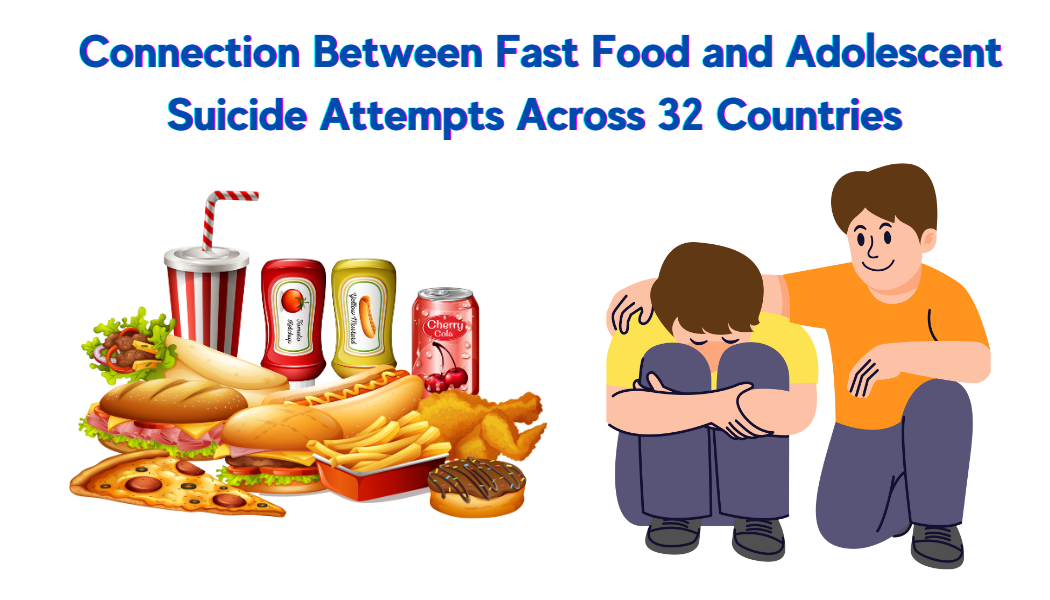In a global investigation, scientists have explored a troubling link between fast food consumption and suicide attempts among adolescents aged 12–15 in 32 countries. Using data from the Global School-based Student Health Survey (GSHS), the study highlights a potential connection between what young people eat and their mental health.
The study involved a whopping 105,061 teenagers from diverse economic backgrounds. Countries were grouped into low-income, lower middle-income, upper middle-income, and high-income categories. Researchers analyzed the relationship between fast food intake and suicide attempts, considering factors like age, gender, economic status (measured through food insecurity), alcohol and tobacco use, physical activity, obesity, soft drink consumption, and fruit and vegetable intake.
The results raised concerns as 53.5% of adolescents reported consuming fast food regularly. Even more worrying was the higher rate of suicide attempts among regular fast food consumers – 11.8% compared to 8.3% in non-consumers. This concerning trend was observed in 26 out of the 32 countries, although the statistical significance varied.
Through various statistical analyses, the researchers found a pooled odds ratio (OR) of 1.31 (95% confidence interval: 1.17–1.46). This suggests a moderate increase in the risk of suicide attempts linked to regular fast food consumption among adolescents.
Despite the study’s comprehensive nature, the researchers caution against making definitive conclusions about causality or the timing of the identified associations due to the inherent limitations of cross-sectional studies.
While the research establishes a significant link between fast food and adolescent suicide attempts, scientists stress the need for more thorough exploration. They advocate for long-term studies to confirm or challenge their findings and to understand the potential underlying reasons for this troubling connection.
This study emphasizes the importance of considering dietary habits when discussing adolescent mental health. As fast food consumption rises to alarming levels, the findings call for additional research to unravel the complexities of this association. A deeper understanding and the potential development of intervention strategies are crucial for addressing the broader public health concerns highlighted by this significant study.
Reference
Other interesting articles




